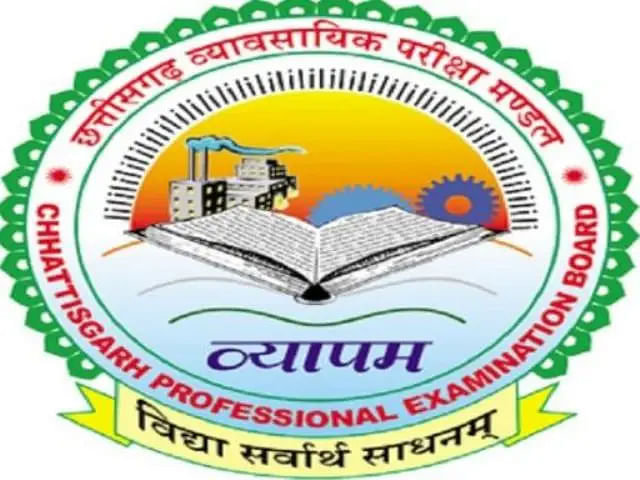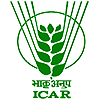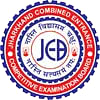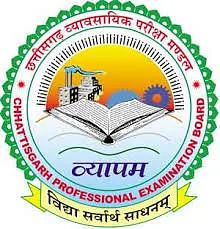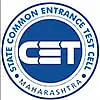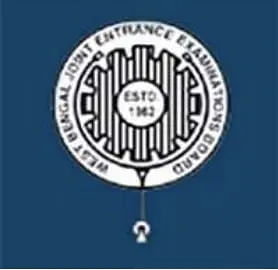
Table of Contents
CG PAT syllabus 2025 has been prepared by the conducting authority, Chhattisgarh Professional Examination Board (CPEB). The syllabus is issued in the form of a PDF, individually for all the programs.
CG PAT is a state entrance examination. The exam is for enrollment of students for undergraduate courses in agriculture and horticulture in several institutes of Chhattisgarh. It is on paper and further divided into three sections.
These may vary for different educational backgrounds. Candidates might be appearing based on qualifications in Mathematics, Biology, or Agriculture. There are full details concerning the CG PAT 2025 syllabus structure, major chapters, and subjects provided below.
CG PAT Syllabus PDF Download 2025
The respectable CG PAT syllabus 2025 PDF download link has been uploaded through CPEB on its internet site. There might be downloads from the applicants in PDF regarding the syllabus of the subjects of their respective classes.
Now, here are the links to download your official CG PAT syllabus PDF 2025 copies:
| Subject | PDF Link |
| Science | Download Here |
| Agriculture | Download Here |
CG PAT Syllabus Highlights 2025
This syllabus for 2025 CG PAT is categorized into three parts with the focus of particular subjects put in place according to the choice of the study stream decided by the candidate. That is either Mathematics, Biology, or Agriculture.
The table given below illustrates important sections, key chapters, marks allocation, and the duration of the examination.
| Exam Sections | Subjects Covered | Key Chapters | Marks Weightage | Exam Duration |
| Section 1: Physics | Mechanics, Thermodynamics, Optics, etc. | Laws of Motion, Kinematics, Heat Transfer, Reflection | 50 marks | 3 hours |
| Section 2: Chemistry | Organic, Inorganic, and Physical Chemistry | Chemical Bonding, Organic Reactions, Thermochemistry | 50 marks | |
| Section 3: Mathematics/Biology | Based on the stream chosen | Calculus, Trigonometry, Genetics, Ecology, Plant Anatomy | 50 marks | |
| Section 3: Agriculture | For agriculture stream candidates | Agronomy, Soil Science, Horticulture, Animal Husbandry | 50 marks |
Furthermore, applicants must check the subject-wise details syllabus of the CGPAT 2025 examination shared below.
CG PAT Physics Syllabus 2025
CG PAT Syllabus 2025 for Physics has been mentioned below:
| Topic | Subtopics |
| Physics Units and Dimensions | Measurement and fundamental units, Force and Inertia, dimensional analysis, SI Units, Newton’s Laws of motion |
| Mechanical Properties of Solids and Gases | Hooke's law, modulus of elasticity, kinetic theory of gases, gas laws |
| Motion in Two Dimensions | Uniform velocity, uniform acceleration, circular motion, Newton's laws |
| Gravitation | Acceleration due to gravity, geostationary satellites, universal law of gravitation, escape velocity |
| Thermodynamics | Specific heat, mechanical equivalent of heat, laws of thermodynamics |
| Heat Transfer | Conduction, convection, radiation, Stefan's law, Newton's law of cooling |
| Optics | Reflection, refraction, lenses, dispersion, curved mirrors, velocity of light, optical instruments |
| Waves | Periodic motion, simple harmonic motion, oscillation due to spring, wave principles, Doppler effect |
| Electric Circuits | Ohm's law, Kirchhoff's laws, measurements of voltages and currents, resistors, temperature dependence, potentiometer |
| Electrostatics | Coulomb's law, electric field, potential, dipole, dipole field, Gauss's law in simple geometries |
| Magnetism | Bar magnet, magnetic field, electromagnetic induction |
| Electromagnetic Induction | Faraday's law, Lenz's law, elementary idea of dynamo and transformer, electromagnetic waves |
CG PAT Chemistry Syllabus 2025
The Chemistry part is further divided into three branches. Organic, Inorganic, and Physical Chemistry.
Students want to increase widespread expertise in simple standards and learn how to remedy troubles. Major topics are as follows:
| Topic | Subtopics |
| Structure of Atom | Constitution of nucleus, Bohr's atom model, Quantum numbers, Aufbau principle, Electronic configuration (up to Kr), De-Broglie relation, Shapes of orbitals |
| Chemical Bond | Electrovalent, covalent, and coordinate bonds, Hybridization (sp), Hydrogen bond, Shapes of molecules (VSEPR theory), Bond polarity, Resonance, VBT, and MOT |
| Solutions | Modes of expressing concentrations, Types of solutions, Raoult's law, Colligative properties, Non-ideal solutions, Abnormal molecular weights |
| Solid State | Crystal lattices, Unit cells, Structure of ionic compounds, Close-packed structure, Ionic radii, Point defects, Properties of solids |
| Nuclear Chemistry | Radioactive radiations, Half-life, Radioactive decay, Group displacement law, Nuclear reactions, Disintegration series, Artificial transmutation, Isotopes and their uses, Radio-carbon dating |
| Chemical Equilibrium | Chemical equilibrium, Law of mass action, Kp and Kc, Le-Chatelier principle and its applications |
| Ionic Equilibria | Solubility product, Common ion effect, Theories of acids and bases, Hydrolysis of salts, pH, Buffers |
| Thermochemistry and Thermodynamics | Energy changes, Enthalpy, First and Second laws of thermodynamics, Entropy, Free energy, Spontaneity of reactions, Free energy change and chemical equilibrium |
| Chemical Kinetics | Rate of reaction, Factors affecting rate, Rate constant, Rate expression, Order of reaction, First order rate constant, Arrhenius equation |
| Electrochemistry | Oxidation, Oxidation number, Ion-electron methods, Electrolytic conduction, Faraday's laws, Voltaic cell, Electrode potentials, Gibbs energy and cell potentials, Nernst equation, Commercial cells, Fuel cell, Electrochemical theory of corrosion |
| Surface Chemistry | Adsorption, Colloids (types, preparation, and properties), Emulsions, Micelles, Catalysis (types and characteristics) |
| Inorganic Chemistry | s, p, d, and f block elements, Simple nomenclature, Transition metals: Electronic configurations and properties |
| Organic Chemistry | Preparation, properties, and uses of alkanes, alkenes, and alkynes, Benzene, Petroleum, Physical and chemical properties, Polymers (classification), Biomolecules |
CG PAT Mathematics Syllabus 2025
If a pupil chooses an arithmetic movement, critical topics are protected inside the regions of algebra, calculus, trigonometry, and coordinate geometry.
CG PAT Syllabus 2025 for Mathematics has been mentioned below:
| Topic | Subtopics |
| Algebra | Algebra of complex numbers, Graphical representation of complex numbers, Modulus and argument of complex numbers, Conjugate of a complex number, Triangle inequality, Cube roots of unity, Arithmetic, geometric, and harmonic progression, Arithmetic, geometric, and harmonic means between two numbers, Sum of squares and cubes of first n natural numbers, Theory of geometric equations, Relations between roots and coefficients, Quadratic expressions, Quadratic equations in one variable, Permutations and combinations, Binomial theorem (any index), Exponential and logarithmic series, Determinants (up to third order) and their elementary properties, Matrices (types, adjoint, inverse), Elementary properties of matrices, Application in solving simultaneous equations (up to three variables) |
| Trigonometry | Trigonometric functions and their graphs, Addition and subtraction formulas, Multiple and sub-multiple angle formulas, General solutions of trigonometric equations, Relations between sides and angles of triangles, Solutions of triangles, Inverse trigonometric functions, Height and distance (simple problems) |
| Coordinate Geometry of Two Dimensions | Rectangular Cartesian coordinates, Straight line, Pair of straight lines, Distance of a point from a line, Angle between two lines, Circle, Tangents and normal to the system of circles, Conic sections (Parabola, Ellipse, Hyperbola) in standard forms with elementary properties, Tangents and normals |
| Coordinate Geometry of Three Dimensions | Rectangular coordinate system, Direction cosines and direction ratios, Equation of a plane in standard form, Perpendicular distance from a point to a plane, Equation of a line, Angle between two lines |
| Vector Algebra | Definition of vectors, Addition of vectors, Components in three-dimensional space, Scalar and vector products, Triple products, Simple applications in geometry and mechanics |
| Differential Calculus | Functions (polynomial, rational, trigonometric, logarithmic, and exponential), Limit, Continuity and differentiability of functions, Differentiation of rational, trigonometric, and exponential functions, Application of derivatives in elementary problems in mechanics, Increasing and decreasing functions, Maxima and minima of functions of one variable, Rolle’s Theorem, Mean Value Theorem |
| Integral Calculus | Integration as the inverse process of differentiation, Integration by parts, Substitution, and partial fractions, Definite integrals, Areas under simple curves |
| Differential Equations | Formulation of differential equations, Order and degree, Solution of differential equations by separation of variables, Homogeneous form, Linear differential equations of the first order |
| Statistics | Probability (addition and multiplication laws), Conditional probability, Binomial distribution, Simple problems in correlation and regression |
| Numerical Methods | Solution of equations by bisection, False-position, and Newton-Raphson methods, Numerical integration by Trapezoidal and Simpson's Rule |
| Linear Programming | Definition and formation of linear programming problems, Solution by the graphical method |
CG PAT Biology Syllabus 2025
Botany and zoology are used as the scope for getting their answers on subjects from which students would be tested.
| Topic | Subtopics |
| Structural Organisation of Cell | Light and Electron Microscopic view of cell, Structure and functions of cell organelles (Nucleus, Mitochondria, Chloroplast, Endoplasmic reticulum, Golgi complex, Lysosome, Microbodies, Microfilaments, Ribosomes, Centrioles, Plasmids), Eukaryotic Chromosome (Morphology), Cell and Plasma membrane, Differences between plant and animal cells |
| Cell Division and Cell Cycle | Significance of Mitosis and Meiosis |
| Mendel's Laws of Inheritance | Monohybrid and Dihybrid cross, Linkage and crossing over of genetic material, DNA replication, Genetic code, Transcription, Translation, Gene regulation |
| Differences between Prokaryotes and Eukaryotes | Structure, reproduction, and economic importance of Viruses, Mycoplasma, Bacteriophage, Cyanobacteria (Nostoc), and Bacteria |
| Five Kingdom Classification | Binomial Nomenclature, External morphology and life cycle of Spirogyra, Mucor, Funaria, Selaginella, Pinus |
| Angiosperm Reproduction | Elementary knowledge of Microsporogenesis, Megasporogenesis, Fertilisation, Endosperm, and Embryo development in Angiosperms |
| Tissue and Tissue Systems | Meristematic and Permanent tissue, Mineral nutrition (essential elements and their functions), Uptake of minerals, Transport of water and solutes, Transpiration |
| Photosynthesis and Respiration | Importance, Mechanism, Factors affecting these processes, Photorespiration |
| Enzymes and Growth Hormones | Classification, Chemical nature, Mode of action, Importance, Elementary idea of Photoperiodism and Phytochrome |
| Ecosystem | Structures and function, Major ecosystems (Lake, Forest), Food chain, Food Web, Energy flow, Ecological crisis, Role of man in Polluting Environment (Air, Water, Soil) |
| Role of Plants in Human Welfare | Economic plant products (Drugs, Fibers, Cereals, Pulses, Oil Seeds, Sugarcane, Coal, Petroleum), Food preservation methods and importance |
| Principles of Plant Breeding | Role in Crop Improvement |
| Biotechnology | Scope and importance in Agriculture and Industries (Manufacture of cheese, yogurt, alcohol, antibiotics) |
CG PAT Syllabus 2025 for Mathematics
CG PAT Syllabus 2025 for Mathematics has been mentioned below:
| Topic | Subtopics |
| Algebra | Algebra of complex numbers, Graphical representation of complex numbers, Modulus and argument of complex numbers, Conjugate of a complex number, Triangle inequality, Cube roots of unity, Arithmetic, geometric, and harmonic progression, Arithmetic, geometric, and harmonic means between two numbers, Sum of squares and cubes of first n natural numbers, Theory of geometric equations, Relations between roots and coefficients, Quadratic expressions, Quadratic equations in one variable, Permutations and combinations, Binomial theorem (any index), Exponential and logarithmic series, Determinants (up to third order) and their elementary properties, Matrices (types, adjoint, inverse), Elementary properties of matrices, Application in solving simultaneous equations (up to three variables) |
| Trigonometry | Trigonometric functions and their graphs, Addition and subtraction formulas, Multiple and sub-multiple angle formulas, General solutions of trigonometric equations, Relations between sides and angles of triangles, Solutions of triangles, Inverse trigonometric functions, Height and distance (simple problems) |
| Coordinate Geometry of Two Dimensions | Rectangular Cartesian coordinates, Straight line, Pair of straight lines, Distance of a point from a line, Angle between two lines, Circle, Tangents and normal to the system of circles, Conic sections (Parabola, Ellipse, Hyperbola) in standard forms with elementary properties, Tangents and normals |
| Coordinate Geometry of Three Dimensions | Rectangular coordinate system, Direction cosines and direction ratios, Equation of a plane in standard form, Perpendicular distance from a point to a plane, Equation of a line, Angle between two lines |
| Vector Algebra | Definition of vectors, Addition of vectors, Components in three-dimensional space, Scalar and vector products, Triple products, Simple applications in geometry and mechanics |
| Differential Calculus | Functions (polynomial, rational, trigonometric, logarithmic, and exponential), Limit, Continuity and differentiability of functions, Differentiation of rational, trigonometric, and exponential functions, Application of derivatives in elementary problems in mechanics, Increasing and decreasing functions, Maxima and minima of functions of one variable, Rolle’s Theorem, Mean Value Theorem |
| Integral Calculus | Integration as the inverse process of differentiation, Integration by parts, Substitution, and partial fractions, Definite integrals, Areas under simple curves |
| Differential Equations | Formulation of differential equations, Order and degree, Solution of differential equations by separation of variables, Homogeneous form, Linear differential equations of the first order |
| Statistics | Probability (addition and multiplication laws), Conditional probability, Binomial distribution, Simple problems in correlation and regression |
| Numerical Methods | Solution of equations by bisection, False-position, and Newton-Raphson methods, Numerical integration by Trapezoidal and Simpson's Rule |
| Linear Programming | Definition and formation of linear programming problems, Solution by the graphical method |
CG PAT Agriculture Syllabus 2025
For applicants of the Agriculture stream, the study curriculum comprises only agricultural science and applications. The Agriculture curriculum incorporates the following subjects:
CG PAT Syllabus 2025 for Agricultural Physics has been mentioned below:
| Topic | Subtopics |
| Principle of Archimedes | Floating bodies, Density and relative density, Determination of R.D. by hydrometers |
| Atmospheric Pressure | Fortin's barometer and its relation to weather conditions, Manometer |
| Pumps | Force and vacuum pumps, Syphon suction pumps |
| Friction | Laws of friction, Angle of friction, Coefficient of friction and its determination, Advantages and disadvantages of friction |
| Machines | Simple machines (lever, pulley, simple wheel), Construction and working, Mechanical advantages, Velocity ratio, Efficiency of machine |
| Gravitation and Gravity | Relation between 'G' and 'g', Simple harmonic motion, Simple pendulum, Law of gravitation |
| Heat | Unit of heat, Specific heat, Thermal capacity, Water equivalent of heat, Determination of specific heat of solids and liquids, Latent heat, Determination of latent heat of ice and steam |
| Transmission of Heat | Conduction, Convection, Radiation, Conductivity, Good and bad conductors, Newton's law of cooling (simple idea) |
| Light | Rectilinear propagation of light, Shadow and eclipse, Pinhole camera, Reflection through a prism, Dispersion of light, Dispersive power, Spectrum, Spectrometer, Optical instruments |
| Magnetism | Magnetic field, Intensity of magnetic field, Lines of force, Neutral point, Couple acting on a magnet in a uniform magnetic field, Magnetic moment, Tangent law and its limitations |
| Electric Charge | Electric potential, Electric field and its intensity due to a point charge, Potential inside a conductor |
| Electrical Capacity | Its unit, Value for a spherical conductor, Principle of condensers, Capacity of spherical and parallel plate condensers |
| Ohm's Law | Resistance, Grouping of resistances, Electromotive force (EMF) and potential difference, Potentiometer (principle), Comparison of EMF of two cells using a potentiometer |
| Heating Effect of Current | Joule's law, Determination of 'J' by Joule's calorimeter, Elementary idea of house wiring, Electric iron, Electric power and energy |
CG PAT Syllabus 2025 Important Topics
Several topics under each category in the CG PAT exam hold considerable weightage since they have appeared frequently in the previous exams and overall importance.
A list of important topics can help the candidates prepare better. Some key topics under each subject have been mentioned below:
- Chemistry: Organic Reactions, Chemical Bonding, Thermodynamics Chemistry
- Math: Calculus: Limits and Derivative Algebras: Quadratic Equations and Complex Numbers.
- Biology: Genetics DNA structure, Mendelian laws; Ecology: Ecosystem, Biodiversity
- Agriculture Agronomy: Crop/Soil Management Horticulture Plant Propagation Animal Husbandry
- Agriculture: Agronomy (Crop, Soil Management), Horticulture (Plant Propagation), Animal Husbandry (Livestock Management)
CG PAT 2025 Syllabus Topics Removed
As per the latest updates, nothing has been removed yet from the previous syllabus of CG PAT 2025. However, aspirants should keep an eye on the updates of CG PAT from their official website.
If any changes are made in the syllabus then students can update themselves accordingly.
CG PAT Syllabus Points to Remember
Key things to keep in mind when a candidate is thinking of preparing for the CG PAT exam have been mentioned in the pointers below.
These pointers will help the students learn and prepare for the examination in detail.
- Know your syllabus: Know what subjects and what topics are there to be covered for the exam.
- Focus key chapters: To begin with, it should be understood that during preparation as well as during exams the key chapters become more important or more frequently in previous papers.
- Time Management: Sufficient time should be provided for each section both during preparation and during the actual exam.
- Mock and Last Year Paper: Use mock and last year's paper to get acquainted with the sample query paper.
- National Syllabus: By all manners, talk over the legit PDF syllabus released with the aid of the Examinations Department.
FAQs on Chhattisgarh Pre Agriculture Test (CG PAT) Syllabus
Q: How many sections does CG PAT have?
CG PAT has three sections. These are divided into three is, physics, chemistry, and mathematics, or biology and agriculture. The examination is conducted separately for all the sections. Further, the syllabus details have been shared for all the sections, candidates must check the topics and prepare accordingly for the exam.
Q: How can I download an unfastened PDF of the CG PAT 2024 syllabus?
The Chhattisgarh Professional Examination Board (CPEB) website publishes a copy of the syllabus in PDF layout. To download the syllabus, applicants must visit the official website and check for relevant links. Once get it, they must click on it, and choose the particular subject, the syllabus PDF will be displayed on the screen. Students must then download the subject-wise PDF.
Q: In which streams do its subjects fall?
The streams that the students take are physics, chemistry, mathematics, biology, and agriculture, and all these are covered in the CG PAT paper. Students must check the syllabus topics for all the streams in detail to prepare well for the examination.
Q: Was the syllabus for CG PAT for the academic session 2024 changed?
So far, no change or removal of topics has been reported about the syllabus for 2024 CG PAT. If the conducting authority, the Chhattisgarh Professional Examination Board (CPEB) announces any change to the CG PAT syllabus PDF, it will be notified to the students preparing for the upcoming examination.
Q: What are the most critical topics in the CG PAT exam?
In the paper, extremely important topics are written like Mechanics in Physics, Organic Reactions in Chemistry, Calculus in Mathematics, Genetics in Biology, and Agronomy in Agriculture. However, students are advised to prepare all the topics effectively for the examination.
